
If a Toastmasters meeting were a Broadway show, the prepared speakers might be the stars of the show. But for their performances to truly shine, they would need the help of the supporting cast. In this case, the supporting actors are those in a functionary role.
Whether you’re a new member who only wants a small part or you’re ready to stand in a bigger spotlight, here’s how you can help make every meeting a hit and leave the audience wanting more.
Act 1: Exposition
In many clubs, the Toastmaster of the Day opens by explaining how the meeting is organized and introducing the different meeting roles.
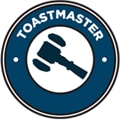
Toastmaster of the Day
The Toastmaster is the director and host, primarily responsible for managing an efficient meeting—they introduce roles, facilitate the transitions between speakers, and make sure the meeting runs on time. This is not an easy role; you need to make sure all assigned positions are covered and arrive early to the meeting so you can help set up.
Taking on this role is an opportunity for you to polish your speaking style and work on organization and time management skills. Since the role sometimes requires quick problem solving—for example, if none of the prepared speakers show up—the Toastmaster of the Day needs to make sure they understand each element of the agenda.
For Ana Yudha of Malang Toastmasters Club in Malang, East Java, Indonesia, the role helps her polish her English-speaking skills. She was even asked to be the English-speaking emcee for an event at the school where she teaches.
“The more often I serve as Toastmaster of the Day, the more progress I feel in my English,” she says. “In the beginning, I used to rely heavily on a script. But now, after four years of actively being in Toastmasters, I can confidently say that I no longer rely as much on my script as I used to. It has really boosted my confidence—not only when hosting in English but also in my native language, Indonesian.”
Act 2: The Heroes Rise
Like in any performance, the headliners have a significant role in the show. In this case, Table Topics® and prepared speeches are the main events.
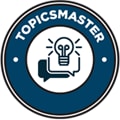
Table Topicsmaster
In this role, you come up with the Table Topics questions and call upon members to speak. Members sometimes joke that the best thing about being the Topicsmaster is you don’t have to worry about being called on. That might be, but the role is an excellent opportunity to exercise creativity and get to know your fellow club members.
Take the traditional approach and ask provocative questions or have some fun: Ask participants to finish a story you start, have them pick questions from a hat, divide participants into teams and make it a game. Anything that engages participants will work.
When preparing your questions, keep a couple of things in mind. First, make the questions short and simple. Long, clever setups cut into the participants’ time. Second, don’t throw out obscure questions to trick or embarrass the speaker. There’s nothing fun about that.
By helping members learn to organize and express their thoughts, within a short amount of time and in an impromptu setting, taking on this role can also help you improve your own time management and facilitation skills.

Prepared Speakers
The leading roles for every meeting are the prepared speakers. In this role, you have (ideally) spent time preparing and rehearsing your speech, have the longest speaking time in the meeting—typically at least four or five minutes—and draw on your skills to hopefully engage and enlighten the audience. No matter the level of the presenter, audience members are bound to learn something from every speech, both about the topic and what is done well and not so well by speakers.
Unless you’re giving an impromptu speech, show respect to your audience by rehearsing a few times before the meeting. Arrive with your speaker introduction already written; don’t plan to scribble it a few minutes before you’re called to the stage. Write one that interests the audience and tells them why they should listen to you.
Part of your role as a speaker is also to listen attentively to your evaluator’s comments when that time comes. Processing feedback is an important skill itself.
Act 3: Resolution
Here’s where all the roles come together to round out a successful performance.
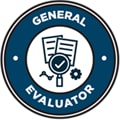
General Evaluator
The General Evaluator manages the evaluation team, which consists of the speech evaluators, Ah-Counter, grammarian, and timer. As the General Evaluator, you introduce the people in those roles, asking them to deliver their respective meeting reports. You are also responsible for reviewing everything that happens, or doesn’t happen, during the meeting. For example, did the meeting start on time? Were all roles filled before the Sergeant at Arms banged the gavel? Did everyone perform their roles as directed?
By leading the evaluation team and giving a short but comprehensive speech—prepared in the course of the meeting itself—you can improve your critical thinking, organization, time management, and motivational skills. You also need to understand each of the roles in case an assigned evaluator cancels at the last minute and you have to take on an additional role.
Hold everyone to Toastmasters’ standards but be constructive and try to end on a positive note.

Evaluator
Prepared speakers are what fill the meeting seats, but a well-delivered evaluation is what keeps the speakers coming back to continue learning and growing.
Each evaluator is assigned to a speaker, providing verbal and written feedback on their presentation. In Toastmasters, evaluations are intended to be positive, but they should always be constructive and include areas for improvement. In addition, your evaluation should be expressed as your opinion alone. General Evaluators should follow these same rules when it comes to meeting evaluation.
Evaluations improve active listening, critical thinking, and positive feedback skills. Stephen Harper, a member of Dublin South Toastmasters in Ireland, says delivering evaluations has made him a better speaker.
“When we evaluate others, we learn a lot about our own public speaking,” says Harper. “Having to pay close attention to another speech and then write a short evaluation speech during the meeting was quite a learning curve. At first, I tried to write as many notes as possible, but with experience I’ve relied more on paying attention, writing minimal notes, and being more impromptu. This has improved my focus and ability to be more natural and conversational in my public speaking.
“Don’t worry if you think your evaluation is ‘wrong,’” he adds. “All points of view are valuable."

Ah-Counter
The Ah-Counter helps fellow members improve their language skills by noting overused or filler words—and, well, but, so, you know—and sounds like ah, um, and er. By taking on this role and listening attentively for filler words, you can improve your listening skills and catch your own use of crutch words.
Should you ring a bell or other audible device when you hear a target word or sound? Some find it embarrassing and discouraging to be called out so audibly, and it can feel unkind when you’re the one hitting the buzzer. Other members like the “tough love” and view it as an effective deterrent. Let your club decide.
For positive reinforcement, try awarding the “No-Bell Prize” to anyone who doesn’t use a filler word when speaking.
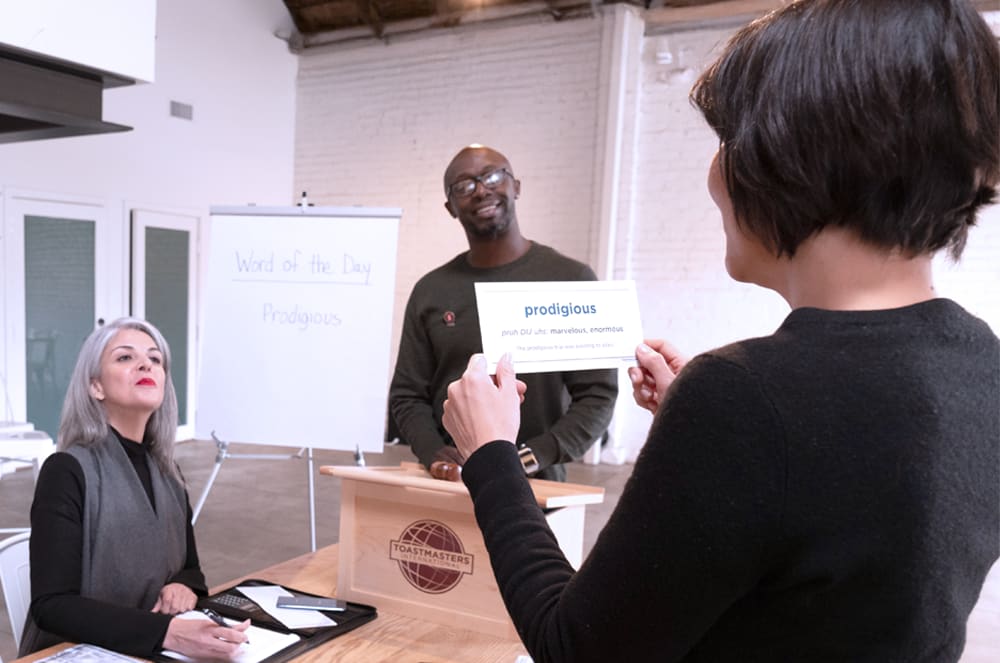

Grammarian
The grammarian plays a crucial role in helping club members enhance their grammar and vocabulary. In this position, you point out speakers’ engaging, as well as ineffective, uses of language. You also choose the Word of the Day and listen for members using it.
People can be hesitant to take this role on; they may have bad childhood memories of struggling in grammar class. But pointing out technical errors is the least of it. Michele Weneck of AstraZeneca Toastmasters Delaware decided to stop focusing on words alone and started listening for the message they conveyed.
“I challenged myself to listen more attentively to the content and noticed outstanding phrases, excellent vocabulary usage, and distinct communication styles,” she explains. “This enabled me to provide more comprehensive grammarian role reports and similarly improved my speech evaluations. For example, in a recent meeting, I concentrated solely on the speaker’s message without distractions. I was able to provide detailed feedback on their use of figurative language and speech structure.”
When she serves in the role, Weneck says, “I ask myself whether I understood the intent of the message, whether my observations include more than just grammatical errors, and, most importantly, whether I can mentor the speaker in a way that provides value.”
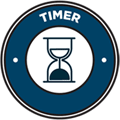
Timer
Helping speakers present within a project’s required length is the one job in which listening skills can hurt more than help. Many people in this role have been so enthralled by a speech that they forget to watch the clock and literally lose track of time. This is a problem that can be overlooked in a club meeting, but in a contest it’s a deciding factor in whether someone advances to the next level.
Timing a speech is more complicated than it may seem. The job involves using a timing device and indicating with cards or lights when the speaker has passed each timed interval of their presentation. The length of a speech can vary depending on the type of speech, and you need to make sure you’re timing accurately.
Before the meeting starts, confirm timing sequences with the speakers or Toastmaster of the Day. And keep your eye on the timing device!

No Small Roles
To tweak a famous show business saying: There are no small meeting roles—only small imaginations. Every function you perform plays a part in the success of the meeting and everyone in it, including you.
Kate McClare, DTM , is a professional writer and editor who joined Toastmasters in 2011. She is a member of Miami Advanced Toastmasters Club in Kendall, Florida, and an Area Director for District 47, Southeast Florida and The Bahamas.
Related Articles

Meeting Roles



 Previous
Previous


 Previous Article
Previous Article